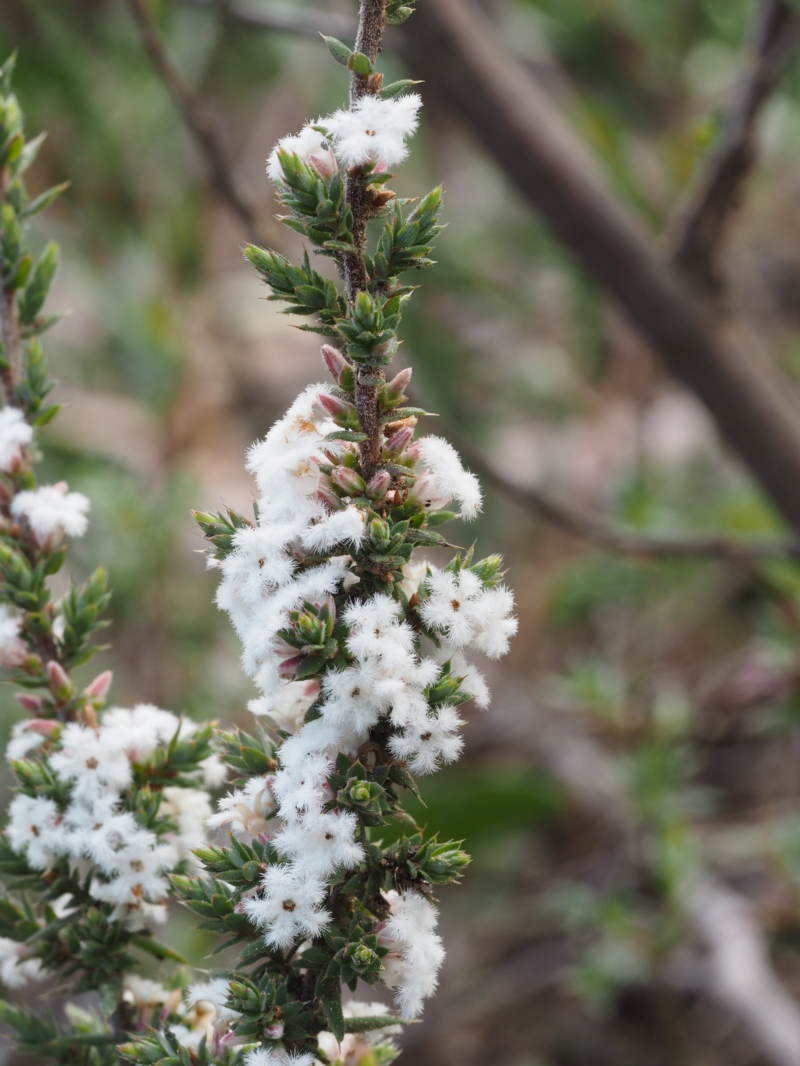Winter Pollinators Wanted sightings
Posted by MichaelBedingfield

Winter Pollinator Research Project
Winter is a time when most insects are dormant or inactive, waiting for the warm weather to return in Spring. Yet there are lots of plants that flower in late winter. So what insects pollinate those flowers? Would you like know and would you like to help in this research project?
Roger Farrow (RogerF) has started a research project to discover the secret of the winter pollinators. There are a number of native plants that are flowering right now in August. There are some early flowering Wattle species such as Acacia genistifolia, pea flowers such as Hovea heterophylla and Hardenbergia violacea, shrubs such as Melichrus urceolatus and Cryptandra amara and Cryptandra sp. Floriferous.
There also the bearded heaths, Leucopogon species. Roger is especially interested in Small-leaved Beard Heath, Leucopogon attenuatus. See photo below. The flowers of L. attenuatus with their dense hairy throats would seem to require a specialist visitor.
If you see any insects hanging around or on these the flowers of these plants please photograph them and upload your sightings onto Canberra Nature Map. You can add your sighting to the "Winter Pollinator Research Project" Collection which can be seen here:
https://canberra.naturemapr.org/collections/sightings/10606
You can contact Roger through his Message Page here.
Future - Spring and Summer...
While on the subject of pollinators I would like to remind you of Meredith Cosgrove’s pollinator project as well. ACT for Bees wants to know about the kinds of insects visiting flowers to design better plantings for pollinators and understand insect-plant interactions. Message her at her Message page here. See her announcement re "Help us help our pollinators !" here:-
https://canberra.naturemapr.org/announcements/377
So the search for pollinators will continue right through the Spring and Summer. Please keep your eyes on the flowers you see for insect visitors.
When uploading your sighting, please remember to tick the box for Pollinator Insect on Flower:

Thank you for your help !
Leucopogon attenuatus, Small-leaved Beard Heath, by Ken Thomas:-

No sightings currently exist.


